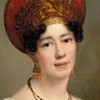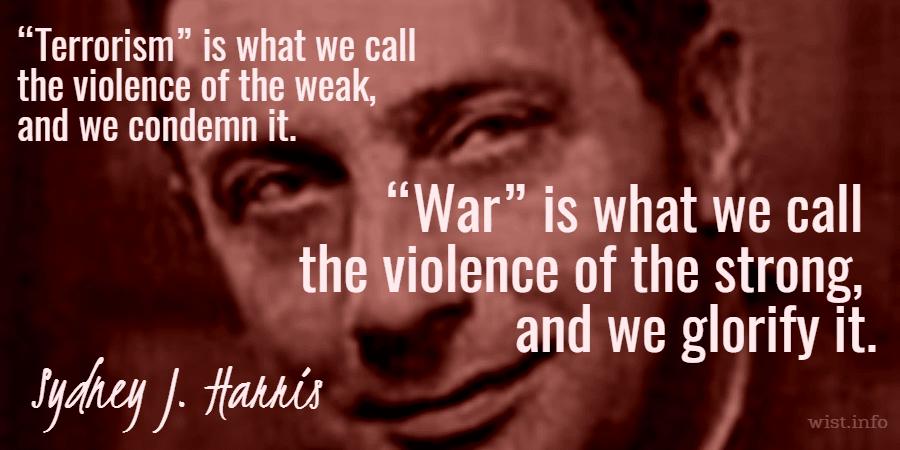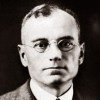What is at issue here is relative poverty, not absolute poverty. Inferiority is a relative concept. When everyone is poor together, there is no shame in being poor. As Marx said, it is not living in a hovel that causes people to feel ashamed, it is living in a hovel next to a palace. And as he also said, shame is the emotion of revolution, i.e. of violence. But one does not have to be a Marxist, or subscribe to everything he said (and I do not), in order to see how correct his insight was.
James Gilligan (b. c. 1936) American psychiatrist and author
Preventing Violence, ch. 5 (2001)
(Source)
Quotations about:
relativity
Note not all quotations have been tagged, so Search may find additional quotes on this topic.
Health is relative. There is no such thing as an absolute state of health or sickness. Everyone’s physical, mental, and emotional condition is a combination of both.
Theodore Isaac Rubin (1923-2019) American psychiatrist and author
The Angry Book, “Let Freedom Ring” (1970)
(Source)
His view of war — and he had seen a great deal of it — was that a general made as many blunders as he fought battles, but, by the grace of the gods, the opposing generals’ blunders were sometimes worse.
Aubrey Menen (1912-1989) British writer, novelist, satirist, theatre critic
A Conspiracy of Women (1966)
(Source)
See Tartakower.
We do not judge men by what they are in themselves, but by what they are relatively to us.
Anne Sophie Swetchine (1782-1857) Russian-French author and salonist [Madame Swetchine]
The Writings of Madame Swetchine, “Airelles”, #25 (1869) [ed. Count de Falloux, tr. Preston]
(Source)
Love is the emblem of eternity; it confounds all notion of time; effaces all memory of a beginning, all fear of an end: we fancy that we have always possessed what we love, so difficult is it to imagine how we could have lived without it.
Germaine de Staël (1766-1817) Swiss-French writer, woman of letters, critic, salonist [Anne Louise Germaine de Staël-Holstein, Madame de Staël, Madame Necker]
Corinne, Book 8, ch. 2 (1807) [ed. Hill (1833)]
Alt. trans.: "It is certainly through love that eternity can be understood; it confuses all thoughts about time; it destroys the ideas of beginning and end; one thinks one has always been in love with the person one loves, so difficult is it to conceive that one could live without him." [tr. Raphael (1998)]
Let us then admit that there are two histories: the actual series of events that once occurred; and the ideal series that we affirm and hold in memory. The first is absolute and unchanged — it was what it was whatever we do or say about it; the second is relative, always changing in response to the increase or refinement of knowledge. The two series correspond more or less, it is our aim to make the correspondence as exact as possible; but the actual series of events exists for us only in terms of the ideal series which we affirm and hold in memory.
Carl L. Becker (1873-1945) American historian
“Everyman His Own Historian” (1), speech, American Historical Association, Minneapolis (29 Dec 1931)
(Source)
DUKE SENIOR: Thou seest we are not all alone unhappy.
This wide and universal theater
Presents more woeful pageants than the scene
Wherein we play in.William Shakespeare (1564-1616) English dramatist and poet
As You Like It, Act 2, sc. 7, l. 142ff (2.7.142-145) (1599)
(Source)











